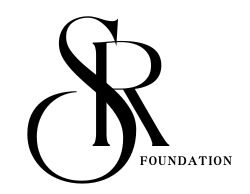Introduction
In a country like India where career decisions often stem from family pressure, societal norms, or outdated perceptions, career guidance becomes not just important but essential. Unfortunately, myths about careers are deeply rooted, and without proper guidance, students risk making ill-informed choices.
This blog busts the most common myths around career guidance using facts, statistics, real-world stories, and evidence-based frameworks. If you’re a student, parent, or even a teacher, this guide will open your eyes to the truths that can shape brighter futures.
Myth 1: “Engineering or Medicine Are the Only Good Career Options”
Fact: There are 100+ emerging and rewarding careers beyond engineering and medicine
Case Study:
Avni, a student from Coimbatore, was pushed toward medicine. After a career counseling session, she discovered her aptitude for communication and psychology. Today, she’s pursuing clinical psychology and working with NGOs on mental health awareness.
Stat Check:
Only 11.5% of Indian students take up engineering or medical sciences in higher education (AISHE 2023).
Myth 2: “Passion Doesn’t Pay the Bills”
Fact: When backed by planning and skill-building, passion can be a successful profession.
Example:
Ritik loved music but was told it was just a hobby. With career mentoring, he pursued a degree in music production, now composes for indie films and runs a profitable YouTube channel.
Framework: The Ikigai model shows that passion, if aligned with market demand and skills, can lead to success.
Myth 3: “Career Choices Should Be Based on Marks”
Fact: Career choices should be based on personality, interests, and aptitude—not just academic performance.
Tool: Psychometric tests like DMIT, RIASEC, and Multiple Intelligences assessments.
Case Study:
Rohan, a student scoring average marks, took a RIASEC test through SR Foundation. The results pointed toward mechanical design and 3D modeling. He pursued a CAD diploma and now works in a manufacturing firm.
Myth 4: “Career Guidance Is Only for Weak Students”
Fact: Career guidance benefits all students, regardless of academic strength.
Example:
Harini, a CBSE school topper, was unsure about her future. After career counseling, she realized her dream was to become a policy analyst. She pursued Economics at Ashoka University and interned with NITI Aayog.
Tool: CEH (Certified Ethical Hacker) – A great starting certification.
Stat Check:
84% of students in India feel underprepared when choosing a career (India Today – 2023).
Myth 5: “Parents Know What’s Best for Their Child’s Career”
Fact: While well-intentioned, parental advice is often based on outdated job markets and personal biases.
Stat Check:
Aditya’s father, a banker, wanted him to join commerce. But career guidance revealed Aditya’s strong visual-spatial intelligence. He pursued architecture and now works with a top firm in Dubai.
Insight: Career paths today are rapidly evolving. Parents need upskilling too!
Myth 6: “One Counseling Session Is Enough”
Fact: Career planning is an ongoing journey. Interests and strengths evolve over time.
Recommendation: Start early (Grade 8-9), revisit decisions every 2-3 years, track skills and trends.
Tool: SR Foundation’s Career Tracker – A long-term roadmap and mentoring system.
Myth 7: “There’s No Scope in Arts or Humanities”
Fact: Liberal arts, psychology, design, and social sciences are booming across the globe.
Stat Check: Liberal arts students from Ashoka, Azim Premji, and FLAME University have received global placements and prestigious scholarships.
Example:
Naina, from a small town in Karnataka, chose Sociology over Engineering. Today, she is a Fulbright Scholar doing research on rural development.
Myth 8: “You Should Figure Everything Out by 18”
Fact: Most successful people take years to discover and refine their career paths.
Real-World Example:
Jeff Bezos worked in finance before launching Amazon. Kiran Mazumdar-Shaw started in fermentation science before founding Biocon.
Message: It’s okay to explore, evolve, and even change careers mid-way.
Key Theories Supporting Modern Career Guidance
- Holland’s Theory of Career Choice (RIASEC) – Matches personalities with careers.
- Multiple Intelligences (Howard Gardner) – Recognizes 9 types of intelligence beyond IQ.
- Super’s Life-Span Life-Space Theory – Career development is lifelong.
- Krumboltz’s Planned Happenstance Theory – Encourages flexibility and readiness for unexpected opportunities.
How SR Foundation Breaks These Myths
- We conduct multi-level psychometric assessments.
- Offer counseling for both students and parents.
- Enable students with real-time exposure to industries.
- Provide mentorship with professionals across domains.
- Guide not just career selection but career evolution.
Conclusion
Career guidance is not just about picking a subject or a college—it’s about building a meaningful, happy, and productive life. Myths will always exist, but the right knowledge, tools, and guidance can break them.
So next time someone says “Just do engineering—it’s safe,” ask them: “Safe for whom? In which decade?”
Your Next Step:
Attend a free SR Foundation Career MythBusting webinar and take your first step towards clarity, confidence, and a career that fits you.
Stay tuned to SR Foundation’s Blog Hub for more myth-busting, future-ready career wisdom!




